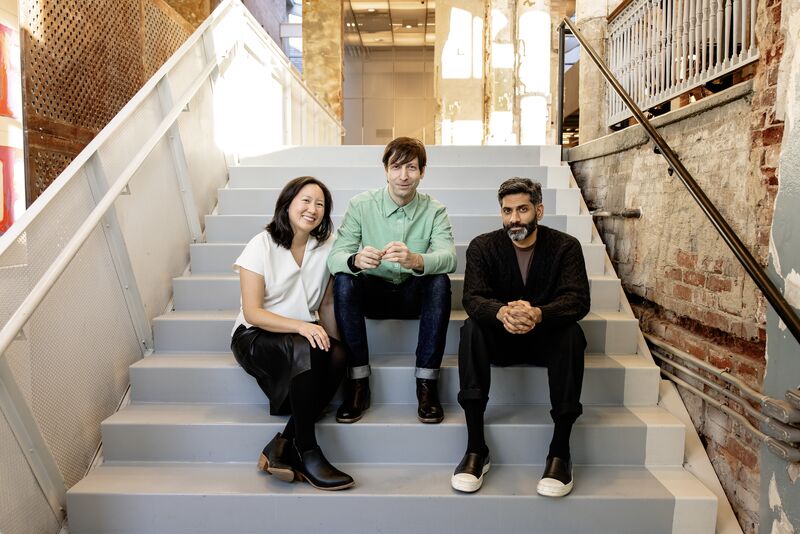The healthcare industry is grappling with a crisis that extends beyond patient care: clinician burnout. As professionals navigate overwhelming administrative tasks, demanding schedules, and staffing shortages, burnout has become a systemic issue impacting healthcare workers and patients alike. Innovaccer Inc., a leading healthcare AI company, recently released a timely research report, The State of AI During the Great Burnout in Healthcare, revealing how artificial intelligence (AI) might offer a powerful remedy to this ongoing crisis.
The Great Burnout in Healthcare: Understanding the Crisis
Clinician burnout is at an all-time high. The American Medical Association (AMA) reports that more than 40% of healthcare providers experience burnout symptoms such as emotional exhaustion, depersonalization, and reduced personal accomplishment. Burnout not only affects the mental health and job satisfaction of healthcare professionals but also has severe implications for patient outcomes, with studies showing a direct link between high levels of burnout and medical errors.
What is Contributing to Burnout?
- Administrative Burdens: Physicians often spend twice as much time on documentation as they do on patient care.
- Increased Patient Loads: Staffing shortages mean that doctors and nurses are handling higher patient volumes, especially since the COVID-19 pandemic.
- Systemic Inefficiencies: Navigating disjointed systems and platforms adds complexity to an already challenging workflow.
The scale of the burnout crisis has made it clear that healthcare needs innovative solutions—and AI is emerging as a potential game-changer.
AI as a Critical Tool in Combating Burnout
Innovaccer’s report highlights the role AI can play in reducing clinician burnout. Based on a survey of over 500 healthcare professionals from nearly 400 U.S. healthcare organizations, the report reveals that 82% of healthcare leaders view AI as essential to their operations, and 67% believe AI is a crucial tool in addressing burnout. This insight underscores a growing recognition within the healthcare community that AI has far-reaching applications beyond diagnostic tools.
Practical Applications of AI in Reducing Burnout
1. Clinical Documentation and Coding Assistance
- AI-driven tools can automate parts of the documentation process, easing the burden on clinicians. For instance, natural language processing (NLP) algorithms can transcribe and summarize patient encounters in real time, allowing healthcare providers to spend less time on data entry and more time on direct patient care.
2. Scheduling and Resource Allocation
- AI algorithms help streamline complex scheduling tasks by analyzing data on patient flow, clinician availability, and predicted care needs. By optimizing scheduling, AI ensures that staffing levels meet demand without overburdening healthcare professionals.
3. Clinical Decision Support
- AI-based decision support systems analyze vast amounts of data to assist in diagnosing and predicting patient needs. By helping clinicians make faster, more accurate decisions, these tools can reduce cognitive load, allowing professionals to focus on high-value care tasks.
4. Personalized Patient Interventions
- AI can also support personalized care by identifying patients at high risk of specific conditions and tailoring interventions accordingly. This targeted approach not only improves patient outcomes but also reduces the likelihood of emergency interventions, which can contribute to clinician stress.
Key Findings from Innovaccer’s Report
Innovaccer’s research sheds light on the healthcare industry’s perception of AI and its potential in addressing burnout. Here are some key takeaways:
- AI is Seen as an Ally, Not a Threat: Despite common concerns about AI-driven job displacement, 69% of healthcare leaders view AI primarily as a tool to support clinicians rather than replace them. Notably, 48% believe that AI can improve care quality, underscoring its potential as a complementary technology in healthcare.
- Positive Experiences with Unified AI Systems: Organizations that implemented AI in a cohesive, unified manner across multiple areas reported universally positive outcomes. This finding indicates that fragmented, piecemeal adoption might not be as effective as an integrated approach.
- Significant Interest in AI, Despite Barriers: Although 87% of survey respondents expressed interest in adopting AI, many identified significant obstacles, including concerns about data accuracy, challenges with system integration, and financial feasibility.
AI and Burnout Reduction
1. Mount Sinai Health System
Mount Sinai has integrated AI to streamline patient intake and automate documentation, reducing the time spent on administrative tasks by over 30%. Clinicians report improved job satisfaction and greater focus on patient care due to the reduction in clerical duties.
2. Cleveland Clinic
Cleveland Clinic has leveraged predictive analytics to manage staffing more effectively. By predicting patient surges based on historical and real-time data, they’ve been able to ensure adequate staffing without overwhelming clinicians, significantly reducing stress during peak times.
When implemented strategically, artificial intelligence (AI) can yield tangible benefits for healthcare professionals by reducing their workload, enhancing efficiency, and enabling them to focus more on patient care. This focused approach not only alleviates clinician burnout but also improves the overall quality of care delivered to patients, highlighting AI’s potential as a transformative tool in healthcare settings.
Navigating the Challenges: Barriers to AI Adoption
While the potential benefits of AI in healthcare are substantial, Innovaccer’s report highlights several barriers that need to be addressed:
1. Data Accuracy and Trust
- Clinicians need confidence that AI-generated data is accurate and reliable. Without trust in the system, healthcare professionals may resist using AI tools, fearing that incorrect data could impact patient care.
2. Integration Challenges
- Many healthcare organizations operate with disparate systems, and integrating AI across these platforms can be complex. Interoperability and seamless integration with existing electronic health record (EHR) systems are essential to ensure AI’s effectiveness.
3. Financial Constraints
- The initial investment for AI solutions can be substantial, especially for smaller healthcare providers. Innovaccer’s report suggests that addressing these financial barriers, potentially through grants or government incentives, could accelerate adoption.
Overcoming the Barriers

Innovaccer emphasizes the importance of vendor partnerships and continuous training to mitigate these challenges. Providing healthcare workers with training on AI tools, establishing strong vendor support, and fostering a culture of transparency around AI’s capabilities can help overcome resistance and improve integration.
Future Outlook: How AI Will Continue to Transform Healthcare
Looking ahead, AI is expected to become even more integral to healthcare, with several promising developments on the horizon:
1. Predictive Analytics for Patient Outcomes
- AI’s ability to predict patient outcomes based on historical data will allow for more proactive care. For instance, predicting which patients are likely to experience complications post-surgery enables clinicians to take preventive measures, reducing both patient risks and clinician stress.
2. Conversational AI for Patient Interaction
- Chatbots and voice-activated assistants are likely to become more common in healthcare settings, assisting with patient inquiries, appointment scheduling, and medication reminders. This reduces the administrative load on staff, allowing them to focus on more complex tasks.
3. Real-Time Analytics for Staffing and Workload Management
- AI-driven real-time analytics can optimize workload distribution across departments. For example, AI can alert managers when a department is at risk of being overwhelmed, prompting them to reallocate resources or adjust schedules accordingly.
The Next Steps for Healthcare Leaders
Innovaccer’s report serves as a call to action for healthcare leaders to explore AI solutions that can support their teams. Leaders are encouraged to:
- Consider a unified AI strategy that aligns with organizational goals.
- Address training needs and foster trust by educating clinicians on how AI enhances, rather than replaces, their roles.
- Investigate financial options for AI adoption, such as grants or partnerships that could offset initial costs.
For organizations interested in exploring AI’s potential, Innovaccer offers resources and tools to guide healthcare providers through AI adoption. As AI’s role in healthcare continues to evolve, organizations that embrace these innovations are likely to see improved clinician satisfaction, reduced burnout, and enhanced patient care.
As AI continues to make strides in healthcare, the technology offers a beacon of hope for reducing clinician burnout. By streamlining administrative tasks, improving clinical decision-making, and optimizing operations, AI can transform the healthcare landscape for professionals and patients alike.
What are your thoughts on AI’s role in healthcare? Have you or your organization considered AI solutions to combat burnout? Let us know in the comments below.
Are you interested in how AI is changing healthcare? Subscribe to our newsletter, “PulsePoint,” for updates, insights, and trends on AI innovations in healthcare.




